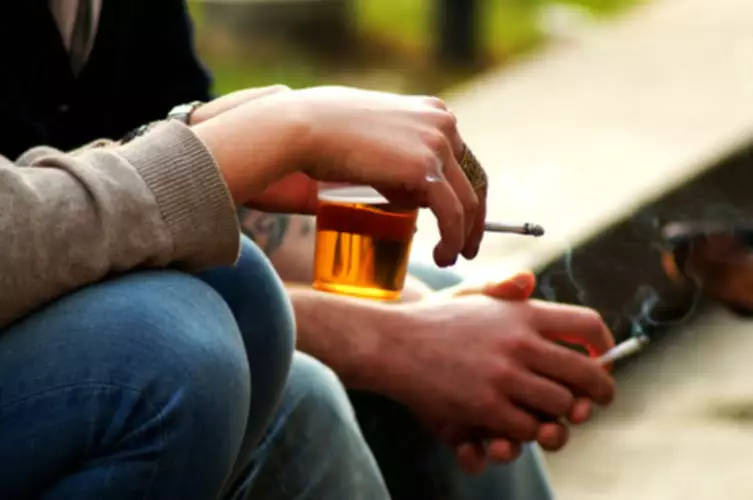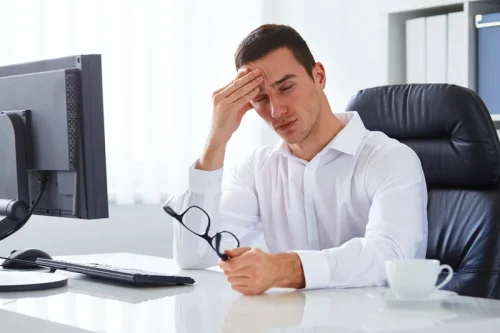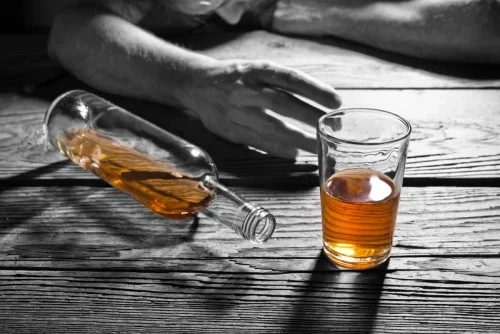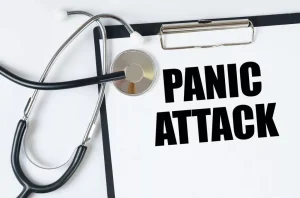
One potential explanation for these findings is that the reasons for using alcohol may differ by gender. For example, women may be more prone than men to self-medicate for mood problems with substances such as alcohol (Brady and Randall 1999). Furthermore, empirical inspection of gender differences in stress-related drinking has shown that women report higher levels of stress and have a stronger link between stress and drinking (Rice and Van Arsdale 2010; Timko et al. 2005). Together, these results suggest that women may be more likely to rely on alcohol to manage anxiety.

Alcohol intoxication may result in stressful mistakes
- Don’t be embarrassed to tell your healthcare provider that you have panic attacks.
- Anyone can experience anxiety—or “hangxiety”—after drinking, even if you aren’t dealing with alcohol dependence.
- If you don’t know where to turn to and need help figuring out your next steps, contact a treatment provider.
- To borrow terminology from the respective CBT approaches for anxiety and AUDs, the link between anxiety and drinking for comorbid clients may mean that in effect an exposure exercise also becomes a high-risk situation for alcohol relapse.
In fact, 50% of people receiving treatment for alcohol use disorder also live with an anxiety disorder. An individual may also have experienced an overwhelming urge to escape during the unexpected panic attack. This can lead to a sense that certain places or situations—particularly situations where escape might not be possible—are not safe. If the person begins to avoid several places or situations, or still endure these situations but does so with a significant amount of apprehension and anxiety, then the person also has agoraphobia (Barlow, 2002; Craske & Barlow, 1988; Craske & Barlow, 2008). Agoraphobia can cause significant disruption to a person’s life, causing them to go out of their way to avoid situations, such as adding hours to a commute to avoid taking the train or only ordering take-out to avoid having to enter a grocery store. In one tragic case seen by our clinic, a woman suffering from agoraphobia had not left her apartment for 20 years and had spent the past 10 years confined to one small area of her apartment, away from the view of the outside.
Alcohol and Anxiety − Does Drinking Worsen Anxiety?
With both SSRIs and SNRIs it is advisable to inform patients that it may take about 1 to 2 weeks before these medications show full effectiveness. In addition, there is a risk of an electrolyte imbalance involving decreased sodium concentrations in the blood (i.e., hyponatremia), which can reduce the seizure threshold. This may be especially relevant during alcohol withdrawal, and clinicians therefore should monitor fluid intake and sodium levels during these periods. Generally, cognitive theories (Clark, 1996) argue that those with panic disorder are prone to interpret ordinary bodily sensations catastrophically, and these fearful interpretations set the stage for panic attacks.

Healthy Lifestyle Habits
- Overall, these symptoms can lead to feelings of terror, causing the person to want to escape from their situation.
- If you or a loved one is ready to overcome an alcohol addiction, reach out today.
- Discuss these concerns with your doctor first to see if alcohol is safe for you.
- The concluding section synthesizes the discipline-specific research to identify conclusions and unanswered questions about the connections between alcohol use and negative affect.
- Symptoms of panic disorder often start in the late teens or early adulthood and affect more women than men.
Psychotherapy (talk therapy) is a term for a variety of treatment techniques that aim to help a person identify and change unhealthy emotions, thoughts and behaviors. If there’s no underlying physical cause, your provider may make a diagnosis according to your symptoms and risk factors. Typically, he offers this in conjunction with supportive therapy, motivational interviewing, and/or cognitive behavioral therapy in 30-minute follow-up visits. Occasionally, Dr. Lin may recommend that additional therapy is needed and ask that you bring a therapist into your care team in order to provide the best outcome.
They can begin imagining the horrible things that can be happening if they are unable to get home, everything from people hating them, to something potentially happening at home. They may run tests to rule out medical conditions that cause similar symptoms as panic attacks, such as heart disease, thyroid disease and respiratory (breathing) alcohol and panic attacks problems. The sequential, parallel, and integrated models each are beneficial in certain respects, and each method should be considered a valuable option in the practitioner’s toolkit. Third, different comorbidity patterns exist among patient subgroups with different demographic characteristics such as race/ethnicity and gender.
- For example, can individuals with AUD be distinguished meaningfully based on objective stress reactivity and regulation indicators, and do subjective anxiety symptoms mark or moderate this distinction?
- However, the effects that make benzodiazepines useful in these diagnoses are the same effects many experience with alcohol.
- We tend to pair up our vices, and not only drink alcohol but also eat highly dense, problematic foods.
- They can begin imagining the horrible things that can be happening if they are unable to get home, everything from people hating them, to something potentially happening at home.

Pathological anxiety is when this fear arises in the absence of any threat or disproportionate relation to a threat, preventing an individual from leading a normal life. At CalmClinic, we believe that information is only as helpful as its accuracy. That is why all of the content https://ecosoberhouse.com/ that we publish is always reviewed and analyzed by professionals in the psychology and healthcare fields. We’re here 24/7 to help guide you or your loved on through rehab and recovery. If you or a loved one is ready to overcome an alcohol addiction, reach out today.

